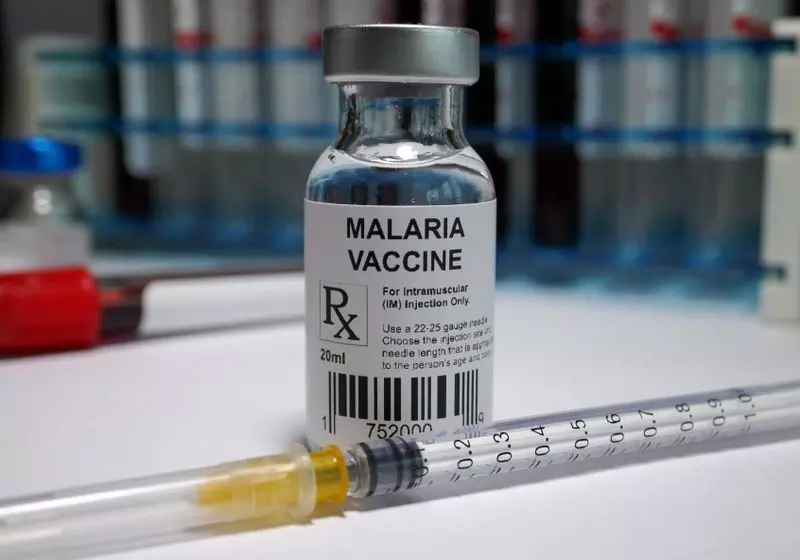Malaria vaccine for kids now more affordable: Bharat Biotech cuts price by over 50%
World’s first malaria vaccine for kids now costs less than $5, Bharat Biotech slashes price to ensure benefit for all children
By Newsmeter Network
Hyderabad: Bharat Biotech slashes price of malaria vaccine to make it available for all children across the world
London/Hyderabad: Bharat Biotech International Limited (BBIL) and GSK on Wednesday announced that they will be reducing the price of RTS,S, the world’s first malaria vaccine, by more than half, to less than $5 progressively by 2028.
This price reduction is driven by process improvements, expanded production capacity, cost-effective manufacturing and minimal profit margins. The companies announced their commitment to Gavi, the Vaccine Alliance (Gavi), in the continued rollout of the vaccine.
What is RTS,S?
RTS,S was the first malaria vaccine recommended by the World Health Organisation (WHO) in 2021.
“Since then, GSK has made significant investments to enhance production capacity and efficiency, and to undertake the planned technology transfer to Bharat Biotech. In parallel, Bharat Biotech has invested over $200 million in new, higher-output manufacturing facilities, product development and technology transfers. These enhancements have enabled a phased reduction in the price of the malaria vaccine, starting immediately and fully realised by 2028, when the transfer of production between the two companies is complete,” the company said in a statement.
Immunisation programmes in Africa
With Gavi’s support, 12 endemic countries in Africa will have introduced RTS,S through routine immunisation programmes by the end of 2025.
Dr Krishna Ella, executive chairman of Bharat Biotech International Limited, said, “This pledge to Gavi 6.0 is more than a pricing announcement. It’s a commitment to global equity, innovation, and collaboration. Through this historic announcement, we aim to change the course of malaria burden for millions of children and families. For us, this is more than a cooperation; it’s a promise. By joining forces with GSK, and working closely with Gavi and the WHO, we are taking a real step toward closing the gap between vaccine supply and the urgent needs of children at risk of malaria. At Bharat Biotech, we believe technology must deliver on three essentials: safety, affordability, and accessibility. With this collaboration, we are turning this belief into real impact, with the aim of ensuring life-saving vaccines reach the communities that need them most.”
Thomas Breuer, chief global health officer, GSK, said: “We partnered with Bharat Biotech in 2021 with a common goal: to find a sustainable solution to get ahead of malaria. Today, we announce GSK’s contribution to the long-term price ambition of the world’s first malaria vaccine, a key milestone achieved through collaboration with Bharat Biotech and partners from Gavi, PATH and the WHO. This demonstrates our commitment to changing the trajectory of infectious diseases like malaria, making a difference in the lives of children and families across Africa. The GSK team has worked hand in hand with Bharat Biotech to transfer the vaccine manufacturing technology, while simultaneously implementing crucial improvements in manufacturing efficiencies, resulting in today’s pledge to the Gavi replenishment.”
What do the studies say?
The data generated from studies of the malaria vaccine developed by GSK, PATH and partners spans multiple years in malaria-endemic countries, multiple seasons and in high transmission settings.
In a recent evaluation of impact by the WHO of the Malaria Vaccine Implementation Programme (MVIP) in Ghana, Kenya and Malawi, where over 2 million children received the RTS,S vaccine between 2019 and 2023, the WHO reported a 13 per cent reduction in all-cause mortality and a 22 per cent reduction in hospitalisations of severe malaria among children.
When administered seasonally in regions with high malaria transmission, alongside seasonal malaria chemoprevention, the two malaria vaccines recommended by the WHO, have been shown to prevent approximately 75 per cent.
How does the malaria vaccines work?
Malaria vaccines are part of the malaria ‘toolbox’ alongside other interventions such as seasonal chemoprevention, malaria treatments, Indoor Residual Spraying (IRS) and bed nets. While no single intervention recommended by the WHO for malaria control is sufficiently efficacious to serve as a standalone intervention, malaria vaccines are one of the high-impact malaria interventions.
Building on this foundation, research has begun at GSK to develop a new vaccine designed to further improve protection for children in endemic countries against the most severe form of malaria. By targeting a different stage of the lifecycle of the malaria parasite, this work aims to evolve and expand the global malaria ‘toolbox,’ in support of elimination efforts.